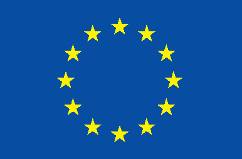Pur-Ther - New immunotherapies targeting the key purinergic checkpoints in the tumor microenvironment
Recently, an innovative strategy named “immunotherapy” has revolutionized cancer therapy. Immunotherapy is based on the concept that rather than trying to kill tumor cells with chemotherapy, we should re-activate the physiological anti-tumor immune response. This strategy is very efficient, especially in tumors with a very poor prognosis. The anti-tumor immune response can be re-activated using monoclonal antibodies directed against molecules of the immune cells named “PD-1”, “PD-L1,” “CTLA4”. These molecules (also referred to as “immune checkpoints”) inhibit immune cells responses, therefore their blockade “re-activates” the immune cells and promotes tumor cell killing. However, immunotherapy has its own drawbacks since it often activates immune-mediated aggression of healthy tissues or tumors become refractory. Therefore, novel pathways to modulate the antitumor immune response should be identified. Stimulation of the patient’s immune system occurs at the interface between the tumor and the patient’s tissues, in an environment referred to as “tumor microenvironment”. The tumor microenvironment is characterized by a high concentration of a molecule named ATP. ATP is usually confined within the cells, where it serves as a key energy source. However, in tumors, ATP accumulates into the extracellular space where plays several roles: it stimulates immune cells, promotes tumor proliferation, generates an immunosuppressant named adenosine. Cancer students believe that dissecting this intricate network (the “purinergic system network”) and identifying the crucial “checkpoints” (the “purinergic checkpoints”) will lead to a breakthrough in cancer therapy. We have developed original techniques to measure ATP in tumors and to verify how its concentration changes in response to therapy. We also developed highly innovative small antibodies named “nanobodies” raised against the most critical purinergic checkpoints. Therefore, we plan to verify whether this weaponry of highly innovative reagents will improve the therapy of three tumors selected for their resistance to immunotherapy: lung adenocarcinoma, glioblastoma multiforme, and multiple myeloma. We will test the effect on the growth of experimental tumors of nanobodies and chemical drugs highly selective for the purinergic checkpoints. In addition, in compliance with the most recent therapeutic protocols, we will explore the effect of the combined administration of purinergic checkpoints together with immune checkpoints. Finally, with this project, we plan to set the basis for phase I/II clinical trials (first-in-man) to verify the efficacy of the combined administration of immune checkpoint blockers together with selected purinergic checkpoint inhibitors.
We are confident that our efforts will pave the way to the definition of novel and effective anti-cancer therapeutic protocols.

This project has received funding from the European Union’s Horizon 2020 Research and Innovation Programme under grant agreement No. 964264.
Project details
Project coordinator: Elena Adinolfi
Funding source: ERA-NET Cofund TRANSCAN-3
Start date: 01/01/2023 - end date: 31/12/2025
Total contribution:1.134.480,00 €
Total contribution to UniFe: 199.999,80 €
Participants
- Università degli Studi di Ferrara, Italy - Coordinator
- CNRS - Institute for Research on Cancer and Ageing (IRCAN), France
- University Medical Center Hamburg-Eppendorf, Center of Oncology; University Cancer Center Hamburg, Germany
- University of Rouen Normandy, France
- University Medical Center Hamburg-Eppendorf, Institute of Immunology, Germany
- Istituto Romagnolo per lo Studio dei Tumori "Dino Amadori" - IRST s.r.l., Italy
